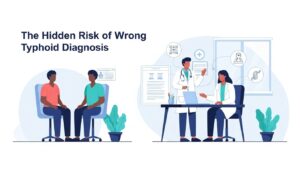Advancements in medical technology have revolutionized surgical techniques, offering patients options tailored to their needs. Among these, laparoscopic (minimally invasive) surgery and open surgery remain two widely used approaches. Understanding their long-term outcomes can help patients make informed decisions about their health.
What Is Laparoscopic Surgery?
Laparoscopic surgery, also known as keyhole surgery, is a minimally invasive technique performed through small incisions. A thin tube equipped with a camera (laparoscope) is inserted to provide a clear view of the internal organs. Specialized instruments are then used to carry out the procedure with precision.
What Is Open Surgery?
Open surgery involves a larger incision to access the surgical site. This traditional method allows direct visualization and manual manipulation of the tissues or organs.
Key Differences Between Laparoscopic and Open Surgery
Incisions and Scarring
- Laparoscopic Surgery: Involves smaller incisions, leading to minimal scarring and a faster recovery.
- Open Surgery: Requires larger incisions, which may result in visible scars and a longer healing process.
Pain and Recovery Time
- Laparoscopic Surgery: Patients typically experience less pain post-operation and can resume daily activities sooner.
- Open Surgery: Recovery is longer due to the larger incision and increased tissue disruption, often requiring more pain management.
Hospital Stay
- Laparoscopic Surgery: Generally associated with shorter hospital stays, often allowing patients to go home within 24 to 48 hours.
- Open Surgery: Requires a longer hospital stay, especially for more complex procedures.
Long-Term Outcomes
Effectiveness and Success Rates
Both laparoscopic and open surgeries are highly effective, with comparable success rates for many conditions. For example, in gynecological procedures such as hysterectomies, studies show similar outcomes in terms of symptom relief and surgical success.
Complication Rates
- Laparoscopic Surgery: The risk of complications, such as infections or blood clots, is lower due to minimal tissue damage and faster healing.
- Open Surgery: While still safe, the larger incision can increase the risk of post-operative complications.
Fertility Preservation
For patients undergoing procedures like myomectomy (fibroid removal), laparoscopic surgery often offers better preservation of fertility due to reduced scarring and faster recovery of the uterus.
Chronic Pain
Patients who undergo laparoscopic surgery are less likely to report chronic post-surgical pain, likely due to the reduced impact on surrounding tissues and nerves.
When Is Each Approach Recommended?
- Laparoscopic Surgery: Ideal for patients with less complex conditions, such as ovarian cyst removal, appendectomy, or diagnostic procedures. It’s also favored for its cosmetic benefits and shorter recovery.
- Open Surgery: Necessary for complicated cases, such as large fibroid removal, cancer surgeries, or emergencies where rapid access to the internal organs is critical.
What Patients Say: Real-Life Stories
Case 1: Sarah’s Journey with Fibroid Removal Sarah, a 35-year-old teacher, opted for laparoscopic myomectomy to treat her fibroids. She recalls, “I was back to work within two weeks and barely noticed the tiny scars. The procedure exceeded my expectations.”
Case 2: Mayowa’s Experience with Hernia Repair Mayowa, a 50-year-old civil engineer, required open surgery for a complex hernia. “The recovery took longer, but my surgeon at Well-Life Hospital ensured I received top-notch care,” he shared. “I’m now pain-free and back to doing what I do.”
How Well-Life Hospital Supports Your Surgical Journey
At Well-Life Hospital, we prioritize personalized care to help patients choose the best surgical approach for their unique needs. Our team of experienced surgeons uses state-of-the-art technology to ensure optimal outcomes, whether laparoscopic or open surgery is recommended.
Contact Well-Life Hospital
At Well-Life Hospital, a trusted name in surgical care located at No. 12 Atbara Street, Wuse 2, Abuja, FCT, we are committed to helping you make informed decisions about your health. Our specialists provide compassionate and comprehensive care tailored to your needs.
To learn more about our services or to book a consultation, visit our website or contact us today:
- Website: welllifehospital.com
- Instagram: @welllifehospital
- Facebook: Well Life Hospital
- Twitter: @Well_Life_H
- TikTok: @welllifehospital
- YouTube: Well Life Hospital
- Mobile: +234 906 000 4314
Your health, happiness, and well-being are our top priorities.






